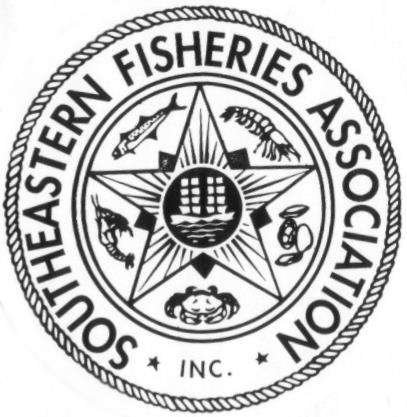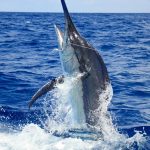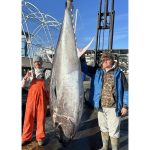From time to time we receive letters to the Editor which we encourage as we have always liked to hear from our clients and broader audience that the ROFFS™ Fishy Times reaches. We always reply to them. Some times we answer them with a telephone call, sometimes via email, sometimes via Facebook, Twitter and/or Linkedin. So if you have a particular thought for us or me to share with comment or a private letter or note, please send them via fish7@roffs.com. Letters via U.S. Postal Service also work too. Sometimes we will post the letter in the ROFFS™ Fishy Times. Today we have one that we think should be shared with everyone. Yes we have received permission to publish it. So see it …
Dear Editor:
I’m getting complaints again that lots of fish, including wahoo and other histamine type species (tuna and mackerel), are being sold directly to restaurants from the back deck of charter and sport fishing boats. This is nothing new and there will never be enough law enforcement officers to completely stop it, but maybe it’s time to once again tell our folks that this practice is against the law and might fall under the “Illegal, UNREPORTED seafood” federal regulations being developed in Congress. Federal penalties are severe.
Our industry must account with records for every trip we make to harvest seafood legally so that the FDA can track a fish or a specific lot from the boat to the throat. If a person(s) get sick from histamine type fish, which happens very often, legally purchased fish can be traced to the daily receiving log required for our seafood dealers. We can’t put a tag on every fish and the tags could be removed anyway so if a restaurant buys some hot wahoo, mahi or amberjack and the restaurant also buys some of these same species from legitimate dealer, there is no way to prove which fish caused the problem.
I’m asking for help. We don’t want another series of newspaper articles about all the fraud that is going on because it reflects badly on the restaurant and the seafood industry.
We are hoping to meet with some of the leaders of the sport-fishing industry to discuss this issue in great detail in the not too distant future.
I have been schooled over the years that you should not bring up a problem without offering some kind of solution. In this case all I can ask for is more awareness and education on the part of our industries.
Your friend,
Bob Jones, Executive Director
Southeastern Fisheries Association
PS: This is my interpretation of an approved seafood source. Your opinion and input would be appreciated.
“Approved seafood source” means restaurants must obtain seafood from a seller that is inspected by a food safety agency operating in compliance with HACCP and the FDA’s Food Code, that buys, records and sells Florida seafood harvested by duly licensed fishermen who comply with the Florida Trip Ticket regulations and federal landing reports when applicable. All Florida harvested seafood sold must have available contemporaneous records listing the name of the boat, captain, species and pounds, date, area of harvest and gear type used in order for the seafood to be sold.
Editor’s Reply:
Dear Bob:
I understand some recreational fishermen’s desire to recover some of their costs when they have caught more fish than they can personally consume and try to take financial advantage of an exceptional day fishing. After all fishing is often an expensive sport. However, once someone sells a fish, they cross the line from fishing for sport to fishing for money which to me and many others means that they become commercial fishermen. Sport fishing is a recreational activity for fun and commercial fishing is a trade and licensed business. I have great respect for the hard and dangerous work that commercial fishermen (men and women) do. These folks provide the most wholesome fresh product with the least amount of ecosystem damage to U.S. consumers than any other fishermen in the world as best as I can tell. One can argue about bycatch and destructive techniques and that there is plenty of wholesome fish coming from the fishing industries in other countries. Yes this is true, but it seems to me that the U.S. fishermen have so many regulations that they must follow to catch, land and process their fish so that it is safe to buy and eat, that we must support their efforts as U.S. business people by buying their products. I respect the “fresh caught by U.S. fishermen” signs I see in the fish markets that I buy from. I know that when I keep a fish to eat at home that it is properly put on ice and safe to eat as I have been trained to do so. Unfortunately, many sport fishermen have not been trained on safe harvest and transportation practices that often result in an unsafe product when it comes in the back door after hours waiting in someone’s truck, van or car trunk.
I also understand the issue of mislabeling and non-reporting of fish and illegally caught fish overseas. In fact the U.S. government is working with other governments around the world to set a real timetable for a hard solution to stop seafood fraud. This happens at home and overseas. Clearly the U.S. consumers and people who buy and serve fish in the U.S. need to be better educated. Space prevents me from reporting the many times that I have been offered fish at restaurants with bogus names like “hognose grouper” (“not hogfish or hog snapper”) or told “fresh” caught this or that which have been frozen to be shipped from overseas markets. I am not sure who first told me that if you are buying a “grouper” sandwich for under $10 that the chances that it is not grouper are very good. To read more about these new attempts to stop seafood fraud see http://www.maritime-executive.com/article/us-sets-timetable-for-seafood-fraud-action or go to the NOAA report http://www.nmfs.noaa.gov/ia/iuu/taskforce.html .
Safe and Successful Fishing.
Editor of the ROFFS™ Fishy Times







